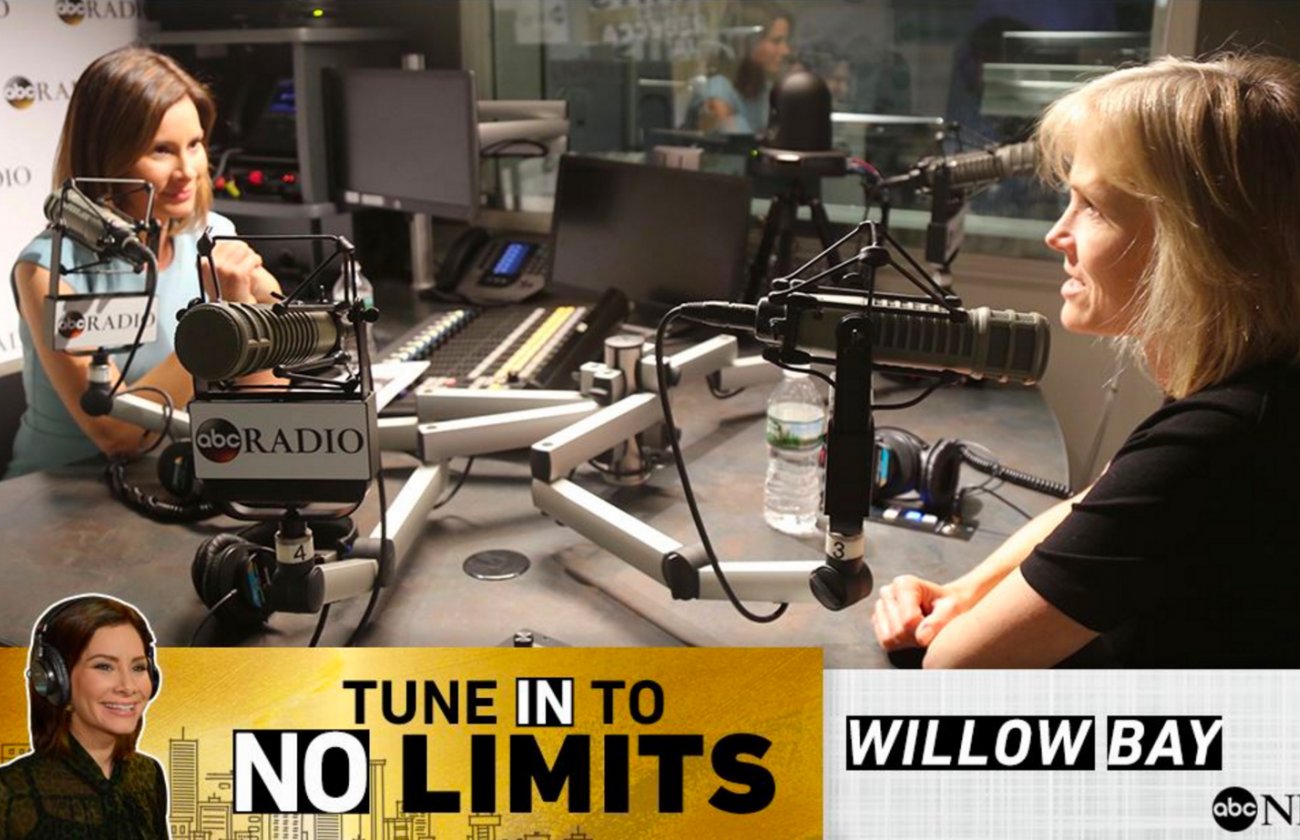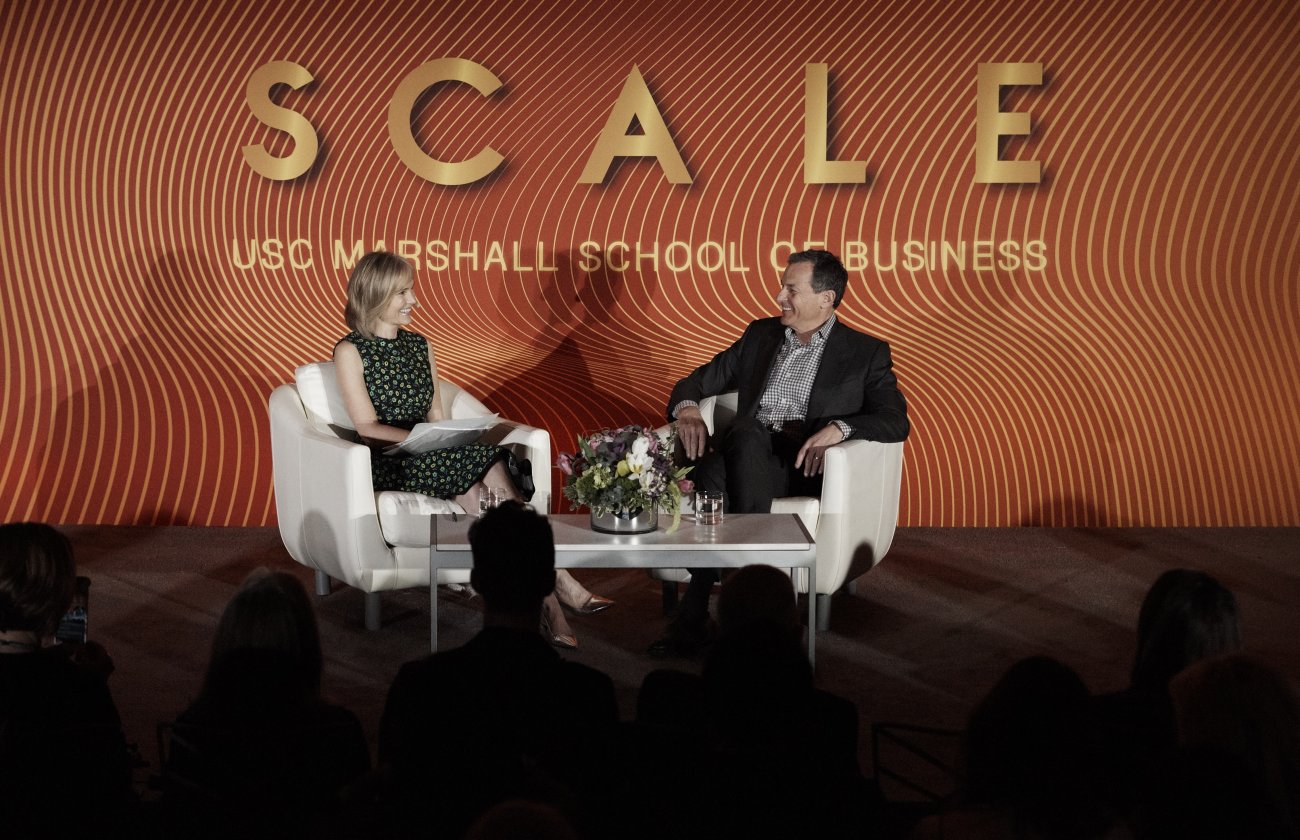At a time when social media is reinventing how the world communicates, understanding audience is more important than ever — a lesson presented by marketing expert Jamie Gutfreund at USC Annenberg on Tuesday, Nov. 3.
Gutfreund visited Wallis Annenberg Hall for a noon journalism forum hosted by School of Journalism Director Willow Bay, and discussed everything from citizen journalism to Snapchat and the key differences between Millennials and Generations X and Z.
One of the greatest obstacles brands and media outlets face in their marketing today, Gutfreund said, is simply adapting to the way in which technology has changed how people consume both media and products.
“My definition of insanity is doing the same thing over and over again and expecting the same results, and I think you’re probably experiencing that when you look at traditional media to some degree,” Gutfreund said. “You need to understand all of your audiences, and not just what they are, but who they are and how they think.”
Gutfreund, currently Chief Marketing Officer for Wunderman, a digital agency network whose clients include Ford, Microsoft and Coca-Cola, is an expert is in breaking down marketing trends by generation. When it comes to Millennials, she said, they tend to care more about stories than brands, and they also want to feel as though they’re a part of those stories when it comes to media narratives and brand engagement.
“People want to feel like they’re actively involved, like they know what’s going on, and like they have some kind of stake in the game,” Gutfreund said.
Brands that do this well, Gutfreund said, include Snapchat and Virgin Airlines. Also important for companies to note is millennials’ preference for visuals over text, and for outlets that allow for high levels of user engagement,which are just a few of the reasons why platforms including Instagram and YouTube have found such massive audiences.
Social media, and in particular Twitter, has also completely revolutionized the way brands engage with consumers, and raised the expectations of companies.
“I’ll have clients tell me, oh I’m just a small, local company based in North America, but you don’t control that anymore,” Gutfreund said. “Nobody determines whether they’re global or local anymore because of the spread of social media.”
Whereas past generations only had the option of returning a purchase to the store if it was unsatisfactory, consumers can now tweet brands about faulty products, flight delays, rude employees, and a whole host of other issues. This has given consumers a voice and power they didn’t have before.
“If you don’t like something you can tweet and you can expect a response from the company in 30 minutes or less,” Gutfreund said. “The paradigm has shifted so that if a brand wants to engage you, if a media outlet wants to engage you, they need to treat you almost like a financial investment.”
In today’s economy, Gutfreund noted that businesses are typically still run by the baby boomer generation, while Generation X-ers usually serve at a management level, and millennials have entered the workforce to fill entry-level positions. There are differing key traits between generations — for example millennials may believe they’re owed something while those from Generation X may believe everyone must pay their own dues — that could lead to conflict in the workplace, Gutfreund said.
This is why it’s important for millennials to have what Gutfreund calls a complete resume, which allows them to bring to a workplace not only their relevant work experience, but also other skills that allow them to put the world into context and work well with people of different generations.
“If Millennials come into a new office and have a great idea, sometimes it’s just as important to be able to understand how that idea fits into the life experience of a Gen X-er or baby boomer,” Gutfreund said. “It’s not just the quality of the idea on its own, it’s also important to understand who the audience is that you’re trying to sell an idea to.”
For students seeking a professional to turn to for career advice, Gutfreund emphasized that mentorships should be two-way streets.
“It’s best to look for a partner, rather than a mentor, who can provide just as much value to you as you can to them,” Gutfreund said. “That way it’s a value exchange, not a favor, and a business contract rather than a social contract. When I work with people who are just getting started out in their career, I’m always excited to see if they’re going to be able to give me a new perspective on the world.”
One piece of advice Gutfreund gave to all generations; learn how to write well.
“As an employer, the one thing we’re looking for is people who can write, and it’s amazingly challenging to find people who can write,” Gutfreund said. “I don’t know what it is, but the people who can write, you’re virtually guaranteed a job.”
Wrapping up the discussion, though Gutfreund acknowledged technology’s potential to isolate, she also touched upon the many ways that technology serves as a global unifier — and how brands must understand this in order to be successful. Emojis, for example, are able to break down language barriers, while Gutfreund cited the app 20 Day Stranger, which challenges people from differing cultures to share aspects of their lives, as a part of a movement toward “digital intimacy.”
“The idea here was that people want to feel connected on more than just their daily lives,” Gutfreund said. “Technology is not just a thing that makes people feel distant, it can also bring people together.”









